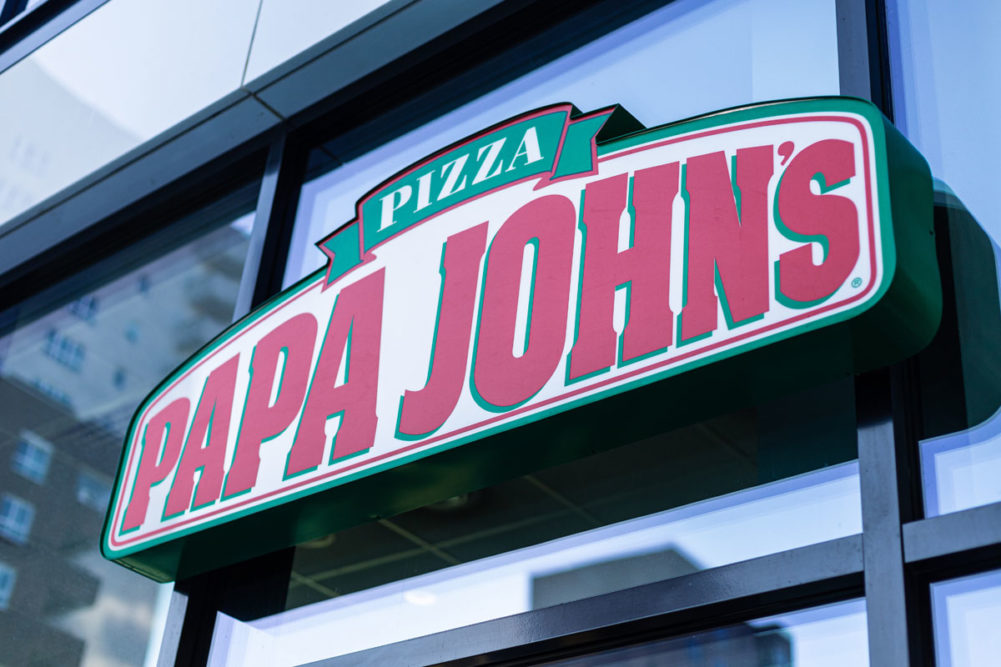LOUISVILLE, KY. — Wage inflation, food costs and growing price sensitivity among consumers culminated into an “especially challenging” third quarter for Papa John’s International Inc., said Robert M. Lynch, chief executive officer of the Louisville-based pizza chain.
Net income for the third quarter ended Sept. 25 was $8.3 million, equal to 23¢ per share on the common stock, down 72% from $29.3 million, or 79¢ per share, in the same period a year ago. Revenues fell to $510.5 million from $512.8 million.
International same-store sales fell 10% year-over-year. North American comparable sales were down less than 1%, marking the first decline after a dozen quarters of consecutive growth.
“The third quarter is typically our slowest quarter due to summer travel, which means our customers are spending less time at home or in the office and ordering less pizza delivery,” said Ann Gugino, chief financial officer at Papa John’s, during a Nov. 3 call with financial analysts. “This year, travel demand was even higher, especially in July and August coming out of the pandemic.”
The results sent Papa John’s stock price down more than 3% during early morning trading on Thursday, though executives at the company said they’re seeing a solid start to the fourth quarter. North American comparable sales already have returned to their positive growth trajectory, Gugino said.
Food basket costs increased 18% in the third quarter, largely driven by year-over-year increases in cheese. Combined with ongoing wage inflation, the higher costs represented 600 basis points of headwind for corporate restaurant margins. Those factors were partially offset by strategic pricing actions, resulting in a 300-basis-point decline in restaurant margins during the three-month period.
While menu prices have increased between 8% and 9% systemwide since the beginning of the year, the company expects full-year food basket costs to be up between 15% and 17%.
With inflation weighing on consumer demand, price sensitivity is top of mind for executives at Papa John’s. The challenge is responding to evolving consumer dynamics without denigrating the company’s premium position.
Lynch pointed to Papadias, Epic Stuffed Crust and Papa Bowls — a new line of pasta-inspired crustless dishes — as examples of successful premium-priced innovation. Additional platforms that complement the company’s core pizza product will land on menus early next year, he said.
“We position ourselves as a premium player in this segment with premium innovation,” Lynch said. “But if you’re a quick-service restaurant and you don’t have a value strategy, you can’t win… While we see competitors undertake aggressive discounting, we’re taking a balanced approach, providing the right promotions to our value-oriented customers without risking the erosion of our brand and pricing integrity.”
Alongside targeted loyalty offerings, the company recently introduced a national Papa Pairings deal that allows customers to order two or more items from a limited menu selection for $6.99 each.
“It’s a great price point to put out on national TV, but because it’s Papa Pairings and you have to buy two items, it’s a $14 transaction to actually execute against this value program,” Lynch said. “We definitely saw a noticeable improvement in our transaction rates with our launch of Papa Pairings. It's part of the reason why we have a lot of confidence in our positive guidance for Q4.”


